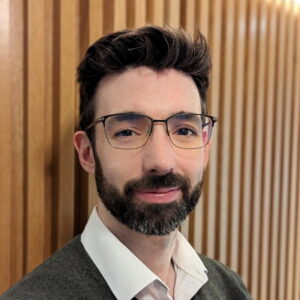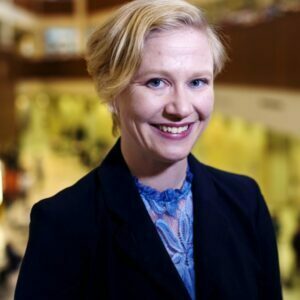The purpose of the Communications Committee is to coordinate and guide SER’s communications to its members and to the general public. The committee also helps ensure regular and ongoing communication between SER’s members and the organization. The committee has primary responsibility for SERnews, the SER newsletter, for SER’s communication via social media, and for other forms of communication generated by SER.
Follow us on Social Media!

Peter Tennant
Communications Committee Co-Chair
Associate Professor of Health Data Science at Leeds Institute for Data Analytics and Fellow of the Turing Institute. My research focusses on the translation and use of causal inference methods to improve analysis of real-world data in health and social science.
Contact
Leeds Institute for Data Analytics, Level 11 Worsley Building, University of Leeds, Leeds, LS2 9NL
Email: P.W.G.Tennant@leeds.ac.uk
X/BlueSky: @PWGTennant
Faculty Page: tinyurl.com/pwgtennant

Rachel Sippy
Communications Committee Co-Chair
Dr. Sippy, MPH, PhD is a postdoctoral researcher in the Pathogen Dynamics Group in the Department of Genetics at the University of Cambridge. Her research focuses on the drivers and determinants of infectious disease seasonality and dynamics, primarily focusing on dengue fever and other mosquito-borne arboviruses. This work uses a combination of phylogenetic analyses and statistical modelling. She is also interested in the use of machine learning for prediction models of clinical outcomes among patients with dengue or environmental exposures impacting mosquito abundance. Most of Dr. Sippy’s projects and collaborations are based in Ecuador and other South American countries, as well as Thailand.
Contact
Department of Genetics
University of Cambridge
Downing Street
Cambridge CB2 3EH
United Kingdom
Phone: +1-319-551-1000
Email: rjs271@cam.ac.uk
She/her
@GermCurves
COMMUNICATIONS COMMITTEE MEMBERS
Amrita Rao
Azar Mehrabadi
Cara B. Janusz
Danielle Stevens
David Fink
David Lopez
Erin Bowles
Fengge Wang
Jonviea Chamberlain
Kendra Sims
Kevin Martinez-Folgar
Lisa-Marie Swanepoel
Peter Tennant
Qiping Fan
Rachel Sippy
Ruby Barnard-Mayers
Sachelly Julian-Serrano
Shama Karanth
Shanshan Sheehy
Yaguang Wei
